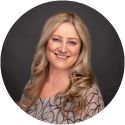How to make your quit smoking resolution stick

It’s that time of year again, the start of a brand new year when we all vow to change our lives for the better. Time to embrace a new and improved life, particularly after the challenges of the last few years. Here we’ll give you some pointers on getting your quit smoking resolutions to stick; these principles can also be applied to other issues such as vaping, alcohol or sugar.
Estimated reading time: 6 minutes
The statistics expect us to fail 🙁
New Year’s resolutions usually kick in on January 1st. We draw a line in the sand and put our old ways behind us. Many people find it hard to keep going with these resolutions and they fall by the wayside as life gets in the way.
A study from the United Kingdom’s Royal Society of Public Health1 found that “quitting smoking is the most difficult resolution to keep”. Only 4 percent of those who attempt to quit smoking unaided remain smoke-free one year later.
Another study, from the University of Scranton2, found only 8 percent of people who make resolutions meet their goal.
Whilst we start off with the best possible intentions, the statistics show that keeping our resolutions can be hard.
So let’s take a look at why that is.
The number one reason we find quit smoking resolutions difficult to keep
The main reason we find our resolutions difficult to keep is because we mostly use willpower to try and achieve them. Anything that requires the use of willpower makes it more difficult. We are trying to control an urge or restrain an impulse to do something.
In the context of smoking this means, “I want to smoke/vape but I’m not allowed to or know I shouldn’t”. It feels like a sacrifice rather than a gain.
If you are constantly having to exercise willpower to achieve your goal it becomes exhausting and sooner or later the excuses start to creep in.
I’ll go to the gym tomorrow instead; work is too stressful right now; just one won’t hurt etc etc.
I’m sure we’ve all been there at some point or another. We break our resolution because it becomes too hard.
My years of failed attempts using willpower to quit smoking
For 17 of my 20 years of smoking my New Year’s resolution was to quit smoking.
And for 17 of my 20 years of smoking my New Year’s resolution lasted almost 2 days.
At the time I truly believed that I liked smoking so why on earth would I want to give up something that I enjoyed so much?!
And why on earth would I want to endure the awful cravings and longing and feel deprived for the rest of my life?!
Every time I tried to stop I asked myself these questions. The thought process and voice in my head went something like this:
“I want a cigarette – you can’t have one.”
“I want a cigarette – you can’t have one.”
“I want one – you can’t have one.”
“I want one – you can’t have one.”
“ Aarghhhh!!!!!”
The voice in my head pleading with me to light up was louder than the voice telling me not to, so of course I did. Just the one. And then another one.…and another one….and another one; the same result for 17 years of failed New Year’s resolutions.
Of course that changed in 2003 after a visit to an Allen Carr seminar. 🙂
So what can you do to help your quit smoking resolution stick?
Should I set a quit date?
Setting a quit date is fine if you stick to it. The same excuses have a tendency to come out before you even reach your quit date.
I’ll start next week; I’ve got this event happening or that event happening; life’s too busy right now. These excuses can be caused by the fear of even attempting to quit something.
In reality, the best day to make a positive change in your life is today. If you are going to set a quit date you need to approach it with positivity and the right frame of mind, a frame of mind that’s about gaining freedom rather than giving something up.
Recognize that quitting is a psychological problem
Most smokers try to stop by using a willpower based method. This could be patches, gum, sprays, vapes, pills, cold turkey etc. I classify them as willpower methods as none of them address the psychological addiction to smoking.
Ask yourself this question; when you want to have a smoke and can’t have one, is there physical pain or do you feel anxious, irritable or frustrated? My guess is it’s the latter. These are all psychological feelings caused by physical withdrawal.
Whilst the physical withdrawal from nicotine is the catalyst, what makes it difficult is the awful feelings. These are caused by the thought process of wanting a cigarette and not being allowed to have one.
Remove the need for willpower
Once you see smoking for what it really is, the need to use willpower is removed.
The tobacco companies have gone to a lot of expense and effort to convince us that smoking relaxes us, relieves stress, helps us concentrate, is sociable and enjoyable but can it really do or be all of these things?
Think about it for a moment. Each cigarette in a packet is exactly the same. How can it be possible that one cigarette can help you relax and another identical cigarette from the same packet can help you concentrate?
How can one help you out on a tough day and another identical one help to enhance a social situation?
The truth is it can’t. Withdrawal from nicotine takes place every time you put a cigarette out. It attaches itself onto the back of everything you do, in every possible life situation.
In other words, every cigarette does the same thing; creates nicotine withdrawal to then temporarily relieve nicotine withdrawal so you only smoke to feel like a non-smoker which is pretty pointless really.
The more clearly you see smoking, the easier it is to be done with it and be a happy non-smoker.
Write a record of your life as a smoker
Write a detailed account of your life as a smoker in the past tense. It has to be in the past tense because this is what you’re escaping from.
How it made you feel, how it made you smell, how it took you away, how it controlled your feelings, your thoughts, your actions, your behavior, how it controlled your life.
The idea isn’t to feel sad or depressed. The idea is to look at it and be grateful that you don’t have to live that way any more.
My New Year’s resolution for 2023
When I finally quit smoking in 2003 at an Allen Carr’s Easyway seminar, my understanding and perspective changed. I no longer craved or desired cigarettes and I finally felt happy and free.
I’m delighted to say that my resolution for this year is the same as it’s been for the last 18 years – to help as many people as possible achieve their goal of quitting smoking, easily and happily.
As Allen says “The real difference between a smoker and non smoker is not how long they’ve gone without smoking but whether they have a need or desire to smoke.”
Sources: 1 RSPH 2 University of Scranton

Natalie @ Allen Carr

get started
Sign up for free advice, support and resources to start you on your quit smoking journey.


